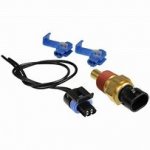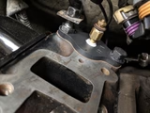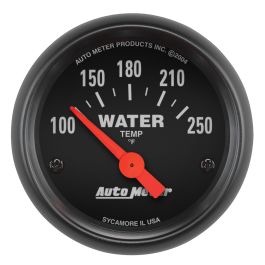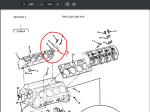DarkSeas
Well-known member
- 209
- 318
- 63
- Location
- Leland, N.C.
Hey y'all,
In my process of reworking the wiring in my M1008 back to stock 24V, I ended up tossing out my glow plug harness that was shredded to pieces. The coolant temp sensor at the back of the motor was busted, and I decided to replace it before I realized how bad the glow plug harness was.
So now I've got a Duralast SU102 sensor in the hole with appropriate pigtail with the wires just sticking up doing nothing, and I was wondering if anybody else has put a gauge on one of these before. Looking to see what brand would be compatable with an SU102.
Pic SU102 for reference:

In my process of reworking the wiring in my M1008 back to stock 24V, I ended up tossing out my glow plug harness that was shredded to pieces. The coolant temp sensor at the back of the motor was busted, and I decided to replace it before I realized how bad the glow plug harness was.
So now I've got a Duralast SU102 sensor in the hole with appropriate pigtail with the wires just sticking up doing nothing, and I was wondering if anybody else has put a gauge on one of these before. Looking to see what brand would be compatable with an SU102.
Pic SU102 for reference:








